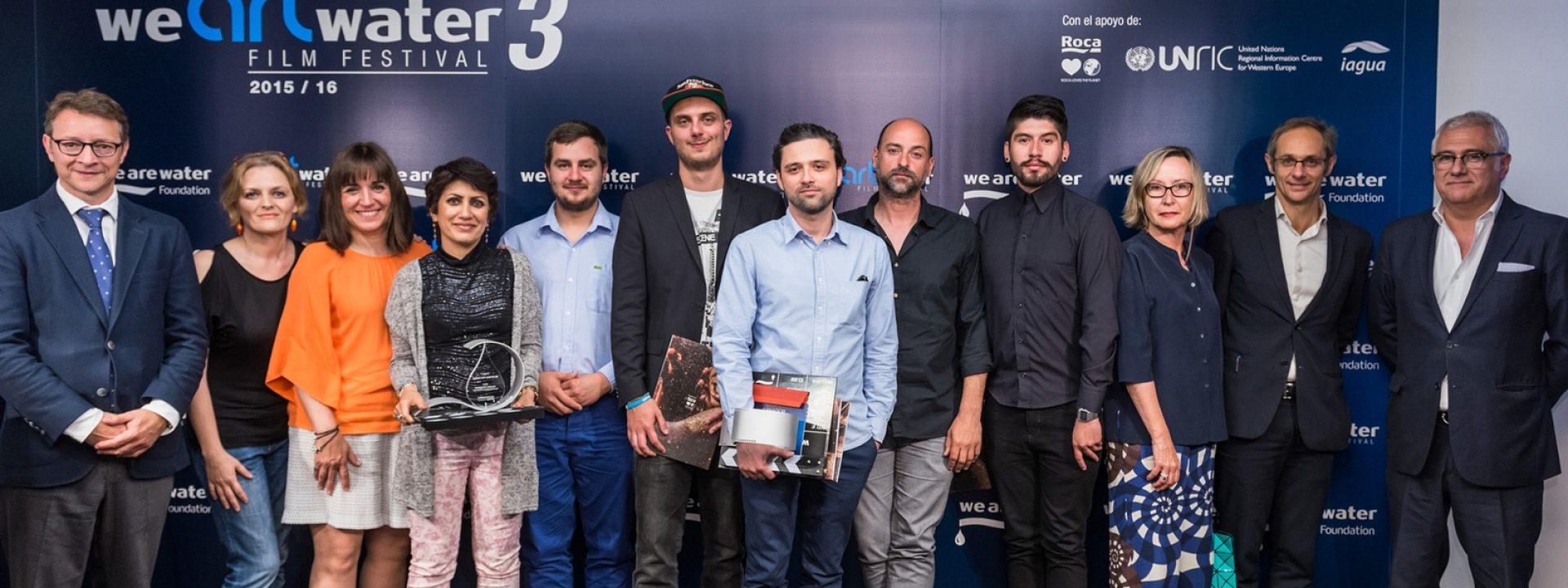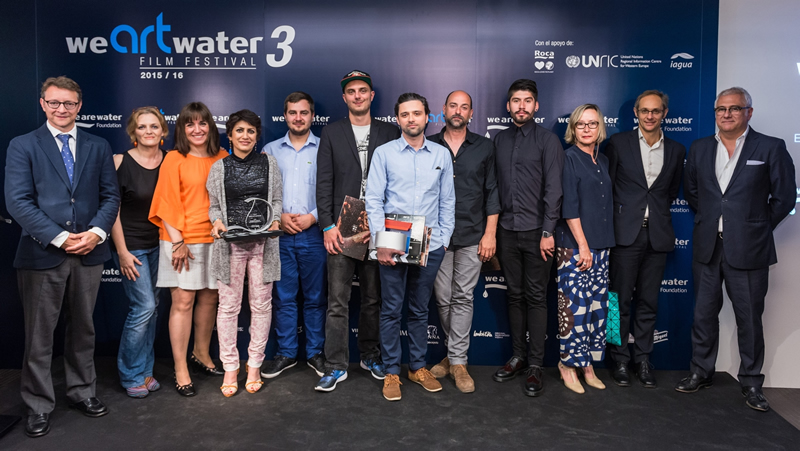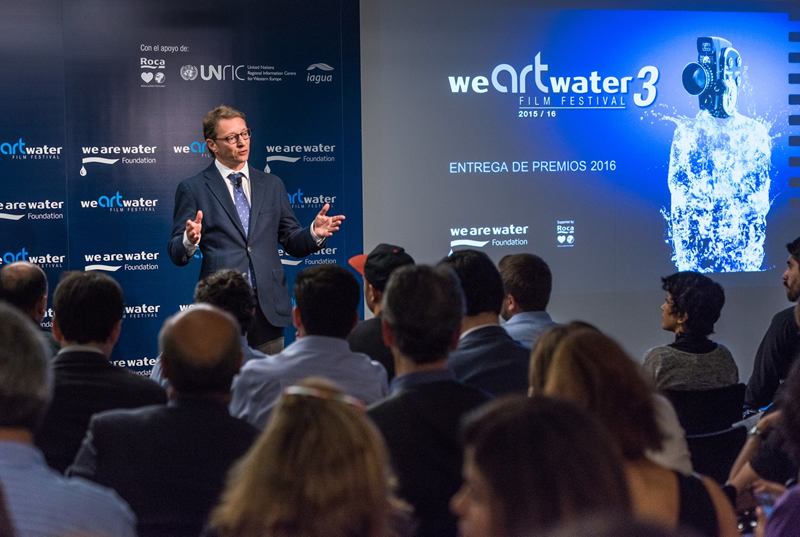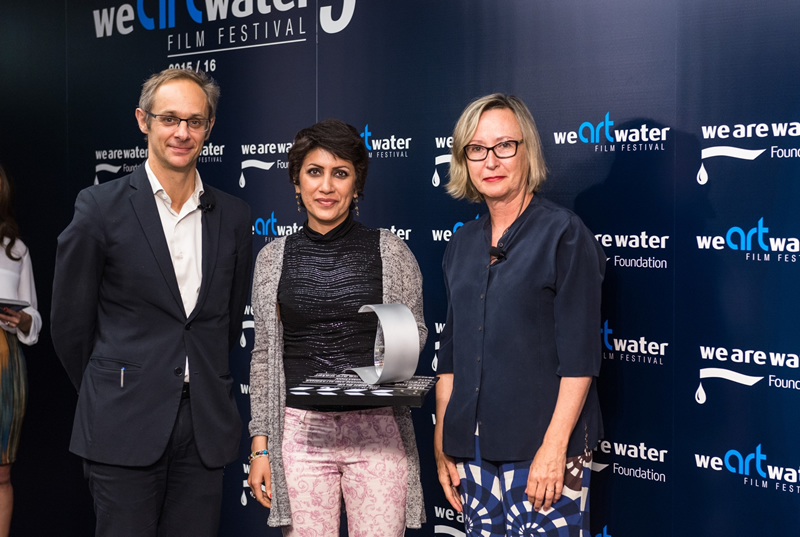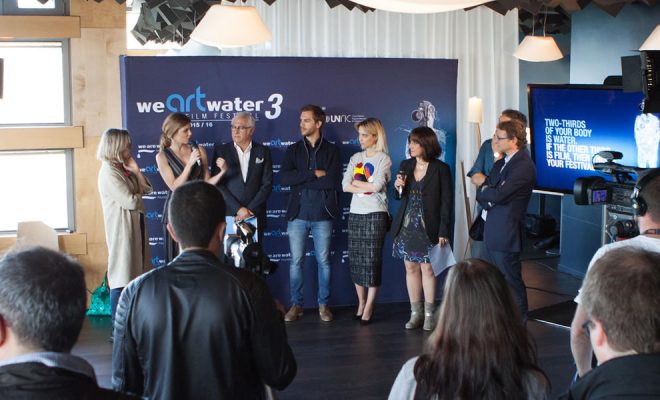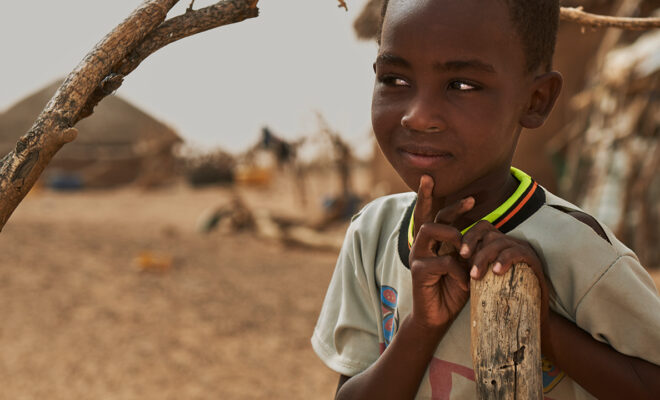The jury highlights the high quality of the shortlisted works at the award ceremony.
The festival consolidates as the ideal formula to communicate and raise global awareness of the water problems.
The jury of the third edition of the We Art Water Film Festival announced the winners of this year´s edition at the award ceremony that took place on Thursday, 2nd June at the Roca Madrid Gallery. You may view the winning videos and the 40 finalists at the website of the festival.
“It was beautiful to view all short films. I spent the entire day in a different world”, Juan José Campanella, Argentinian film and television director, screenwriter and producer, and member of the jury, commented. The words of the winner of an Oscar for best foreign film in 2010 reflect the high level of quality found by the ten members of the jury in this third edition of the festival, which has broken all participation and international dissemination records, being already a reference in the field of awareness raising short films.
The winners are:
- Micro-documentary: Pevek, by Evgeny Makharadze (Russia). In an environment with one of the purest waters in the world, the inhabitants of the decayed Arctic city of Pevek depend on a reservoir for their water provision due to the pollution of the water supply. (View video)
- Micro-fiction: Maximize, by Bertrand Ndukong (Cameroon). A report of the hard reality faced by many African women who, due to the lack of access to water, have to make the most of the little water they have with dire consequences on their health. (View video)
- Micro-animation: Childish blue, by Azadeh Deghani (Iran). The imagination of a nine-year-old girl tries to alleviate the environmental disaster caused by the drying-out of a lake. (View video)
- Public award: Happy World, by Hasan Jubair (Bangladesh) A report of the hard contrasts of the lack of access to water and at the same time a song of hope: we as people are the ones who can find solutions. (View video)
© We Are Water Foundation
Jubair, whose film portrays the hard consequences of the lack of access to water, commented: “I wanted to show a reality in Cameroon, a documentary on the usual water problems found in many areas of my country”.
After receiving the award, the Iranian Azadeh Deghani commented the serious problems caused by climate change in her country: “In Iran, every day more rivers and lakes dry out. I wanted to show a child´s vision of this environmental disaster”.
Carlos Jiménez Renjifo, Desk Officer of the United Nations Regional Information Centre (UNRIC), and member of the jury since the first edition of the Festival, highlighted its value as an initiative to communicate about water at all levels and all around the globe: “These works reflect realities, they report things that do not work, and they also provide solutions, doing it with a visual language, sometimes tender and sometimes with a touch of humour”. Jiménez Renjifo praised the quality of the works presented, whose viewing provided him and all his team at UNRIC in Brussels with an extraordinary “afternoon with popcorn”.
Xavier Torras, director of the We Are Water Foundation, emphasised the high participation of this year´s edition, which has exceeded 1,473 participants from 88 countries: “It is necessary to tell stories in order to raise awareness and who can do it better than those who live next to the problem, using cinema, the best way to reach a large international audience”.
Apart from Torras and Jiménez Renjifo, other members of the jury were present at the awards ceremony, such as Rocío García, journalist specialising in cinema at El País; David Camps, representing Jordi Folgado, director of the Vicente Ferrer Foundation, and Judith Colell, filmmaker and curator of this third edition.
The We Art Water Film Festival 3 has had the support of the United Nations, through UNRIC (United Nations Regional Information Centre) and the magazines iAgua, Cine Informe and Cine & Tele.


